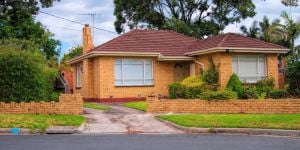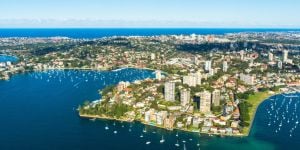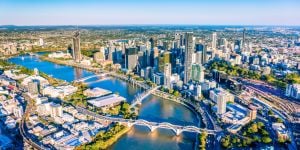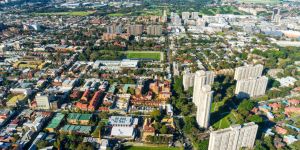
If you're planning a long-term or permanent move to Australia, purchasing property may be something you consider for yourself and your family. If you're not a permanent resident in Australia, you may still buy property in Australia, but restrictions apply. We break down what you need to know about house hunting in Australia and what to be aware of as an expat entering the housing market.
Finding property in Australia
The best way to find and view properties that you are interested in buying in Australia is online through popular property websites such as Real Estate, Domain, or Property. These sites cover all states in Australia, and you can filter your search by type of accommodation (apartment, house, townhouse, studio), price, bedrooms, area, and cosmetic things such as garages or balconies.)
Before you start your housing hunt in Australia, it's a good idea to have a firm idea of your budget and desires. Research the regions where you wish to live and get a good sense of the types of properties available. We recommend you collate a list of must-haves and have an idea of what you are willing to compromise on. Anyone who has bought or sold a house will tell you that the process invariably ends up being longer and more complex than anticipated. So be prepared to take your time.
Hiring a real estate agent is highly recommended (more on this later) as they have a very nuanced understanding of the Australian property market and will have connections for house hunting that aren't accessible if you're just searching online.
Auction and private property sale in Australia
Homeowners in Australia have the option to sell their property either through an auction or private sale. The choice of sale method depends on property type, the seller's preference, and, of course, the current state of the housing market.
Auctions are a popular way of selling properties in Australia, particularly in major cities like Sydney and Melbourne. Auctions can create a sense of urgency and competition among buyers, potentially leading to a higher sale price. In contrast, private sales involve negotiating between the seller and interested buyers without the public auction. Private sales can offer more control over the selling process, and there is no risk of the sale falling through, which could occur in an auction. However, the process can take longer, and the final sale price may be lower than the price achieved through an auction.
Real estate agents in Australia
Most people in Australia use real estate agents when buying or selling property. Real estate agents know the market and can be immensely helpful, especially if you are new to the country and the system. A good real estate agent will assist you in both house hunting and negotiations. They can help find suitable properties that meet your criteria and budget, arrange inspections, and provide advice on the local property market.
Real estate agents typically charge a commission based on the sale price of the property, which is usually paid by the seller. While it is possible to buy or sell a property without using a real estate agent, many people choose to engage an agent to help them navigate the complex process of buying or selling property in Australia.
Property prices in Australia
The general rule of thumb is the further away you go from the city center, the cheaper and bigger the property will be. Australia has witnessed a considerable property boom, with median house prices for Sydney and Melbourne being over one million dollars. This has caused a lot of Australians to either resign themselves to the fact of never owning or moving far away from the city center. Up-and-coming areas are always good to keep an eye on, and the above websites can sometimes assist you with this. Otherwise, a simple Google search will give you some recommendations.
Unfortunately, the housing market in Australia has been experiencing a significant price increase in recent years. In 2023, the median house price in Australia's combined capital cities reached a record high of $851,386, while the median unit price in Australia's capital cities was $612,755.
The price surge has been driven by a combination of factors, including low-interest rates, government incentives for first-time buyers, and a shortage of available properties. However, the rapid price increase has made it increasingly difficult for many Australians to enter the property market. The highest median house prices are in Sydney, where the median house price is $1,300,000, followed by Melbourne at $1,000,000. Other cities with high median house prices include Canberra, Perth, and Brisbane. Meanwhile, the most affordable cities for housing are Hobart and Adelaide, where the median house prices are around $500,000.
Mortgages in Australia
If you're an expat in Australia looking to buy a property, you should know that expats are typically viewed as high-risk borrowers by Australian banks, so you may face more stringent lending criteria than a permanent resident. This can include requirements for a higher deposit or proof of stable employment and income. It's also essential to understand the different types of mortgages available, such as variable or fixed rates, and the associated fees. Expats should be aware of the potential tax implications of taking out a mortgage, particularly if they plan to rent out the property. It's always a good idea to seek professional advice from a mortgage broker or financial advisor before making any significant financial decisions.
The process of buying a property in Australia
Once you've found a property you are interested in, you have to do your due diligence. Most real estate transactions in Australia require a lawyer or conveyancer who will help make sure the formalities are being followed. It's a good idea to secure this person early on in the role. You will also need a mortgage broker and will have to apply for mortgage approval.
While this is falling into place, you should ensure you have thoroughly inspected the property to ensure that it meets your requirements and has no significant issues. This may involve hiring a building inspector or an engineer and getting a full report on the history of the property.
After inspections and acquiring any data on the property you require, and you still wish to proceed, the next step is to make an offer to the seller (or, if an auction, put in a bid). If the seller accepts, you will need to sign a contract of sale and pay a deposit.
After signing the contract of sale, your conveyancer or solicitor will help with the legal aspects of the purchase. The conveyancer will help ensure that the property title is clear and that all legal requirements are met before the final settlement.
On the settlement day, the remaining purchase price is paid, and ownership of the property is transferred to you. You will receive the keys to the property, and the buying process is complete.
How can expats buy property in Australia?
Foreign residents in Australia
If you are a foreign resident, you cannot buy an established residential dwelling in Australia, either directly in your name or through a trust relationship or business. Severe penalties can apply for breaking this law. You are classified as a foreign non-resident by the Foreign Investment Review Board (FIRB) if you hold a visa that allows you to stay in Australia for 12 months or less. FIRB is a governmental regulatory body created to ensure that property sales in Australia to non-residents are made in accordance with the law. However, foreign residents can purchase other types of Australian residential property, including new dwellings, vacant land, and property that is to be redeveloped upon approval from the FIRB. Applications and application fees are required to have your situation reviewed by the board before a purchase can be made.
Temporary residents in Australia
If you are a temporary resident, you can buy an established dwelling to live in as your sole residence in Australia after first getting approval from the FIRB. The property cannot be rented out as an investment property while you are a temporary resident, and you may be required to sell the property if you leave Australia permanently. You are classified as a temporary resident if you hold a temporary visa, which allows you to remain in Australia for more than 12 months, and/or if you are residing in Australia and have applied for a permanent visa while on a bridging visa until a decision has been made on your application.
First-time home buyers grants in Australia
Some states offer first-time homebuyer incentives or grants. Unfortunately, temporary residents do not qualify for these promotions. Some states, including New South Wales, Queensland, and Victoria, also charge a higher rate of stamp duty, or purchase tax, to non-resident home buyers to cut back on non-residents buying property. Therefore, if you are eligible to qualify for permanent residency soon, or your spouse or partner will be, sometimes it is worth waiting before making a purchase.
To be eligible for a first-time home buyers grant, generally, you must be purchasing a property in Australia for the first time. Also, you must be buying the property to live in, not as an investment, you must be a permanent resident or citizen, and the property value may have to be under a specific dollar amount. In NSW, the value is currently AUD 800,000 or less.
Permanent residency in Australia
Once you obtain permanent residency in Australia, you have full property purchasing rights. You can purchase property for your sole use or as an investment. Permanent residents are also eligible to qualify for first-time home buyers grants if they are available in their state of residence. FIRB approval is not required for these purchases, and permanent residents may have more opportunities to obtain homeowner loans than non-residents.
Important:
If you intend to buy a property in Australia, know that many taxes apply (insurance, stamp duty, local taxes, etc.).
We do our best to provide accurate and up to date information. However, if you have noticed any inaccuracies in this article, please let us know in the comments section below.












Comments